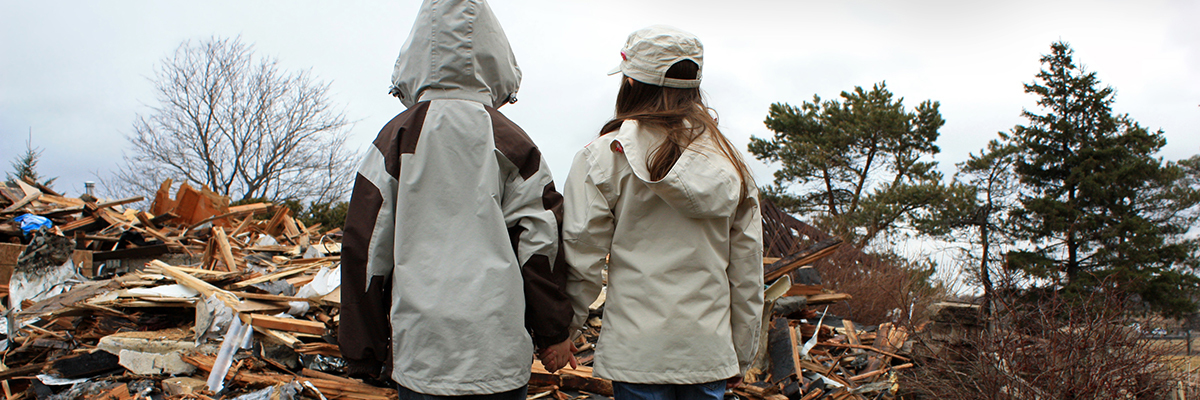Experiencing a Community-Based Natural Disaster

As these events are often unpredictable, large in scale and complicated by rapid changes, the impact are greater than when dealing with a single, time-limited incident. Individuals and families will be more affected than others, and intense reactions may be a common typical response.
Some people find that previous experiences with personal crises or trauma have helped them develop coping skills which may prove beneficial in managing their reactions to the current incident. Others, however, may find that they are experiencing some strong reactions with increased intensity or frequency. An individual’s reactions will also be influenced by the degree to which personal safety and security have been affected.
Disasters also have a tendency to bring communities closer together. At this time, people will value the support of their neighbours, co-workers and emergency personnel. For those individuals experiencing intense reactions, the following information may help you better understand and cope with the current crisis.
Possible Reactions that may be experienced
Feeling overwhelmed, stressed, sad and anxious are within the range of normal reactions. As the initial shock diminishes, reactions vary from one person to another. Some of the more common reactions are:
- overwhelming feelings that may become unpredictable- you may become more irritable than usual, and have frequent mood swings;
- experiencing repeated and vivid memories related to this disaster (which may occur for no apparent reason and lead to physical reactions such as rapid heartbeat or sweating);
- difficulty concentrating, making decisions, or becoming more easily disoriented;
- questioning the uncertain and unpredictable nature of this crisis;
- disruption in sleep and eating patterns;
- becoming withdrawn and isolated and wanting to avoid usual activities; and
- symptoms such as headaches, muscle tension and stomach upset, often related to extreme stress.
Concerns about Personal Safety
You may find yourself focusing on personal safety and the safety of those you care about. As a result, you may be taking extra precautions, for you, your family, and friends, both in and outside the home and workplace. On a positive note, you may find yourself developing new connections and relationships, as the community comes together for mutual support.
Severity of Reactions
Incidents that last longer and involve the threat of (or actual) physical injury, financial insecurity or significant property loss, will result in a stronger reaction. Most people report that even intense reactions diminish over time, after the crisis subsides.
For those experiencing other emotionally difficult situations, such as serious health problems, family difficulties or job stress, more recovery time will likely be required.
Suggested Self Care
- Seek support from people who care about you and who will listen and empathize with your situation. Keep in mind that your usual support systems may be experiencing some of the same strong emotional reactions.
- Communicate your experience in whatever way feels comfortable to you; by talking with family or close friends, or keeping a journal.
- Take good care of yourself by eating at regular intervals, resting and sleeping, and listening to your body’s needs. If sleep difficulties continue to be a problem, you may be able to find some relief through relaxation techniques and exercise.
- Avoid alcohol or non-prescription drugs.
- Establish or re-establish routines, while it may be difficult, to whatever extent is possible.
- Postpone, where possible, important decisions that need to be made during this time until you are feeling emotionally more settled.
- Attempt to restore some of your own sense of personal control and self-confidence in your ability to manage this crisis. In this way, you can also help others in need of your support.




